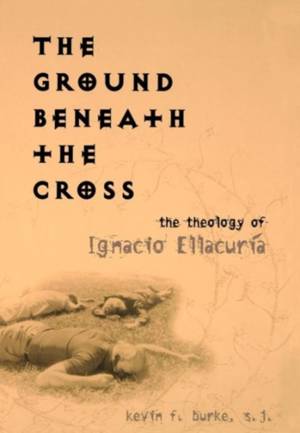
- Retrait gratuit dans votre magasin Club
- 7.000.000 titres dans notre catalogue
- Payer en toute sécurité
- Toujours un magasin près de chez vous
- Retrait gratuit dans votre magasin Club
- 7.000.0000 titres dans notre catalogue
- Payer en toute sécurité
- Toujours un magasin près de chez vous
Description
This book is the first comprehensive analysis of the thought of Ignacio Ellacuría, the Jesuit philosopher-theologian martyred for his work on behalf of Latin America's oppressed peoples.
While serving as president of the Jesuit-run University of Central America in the midst of El Salvador's brutal civil war, Ellacuría was also a prolific writer. His advocacy on behalf of the country's persecuted majority provoked the enmity of the Salvadoran political establishment. On November 16, 1989, members of the Salvadoran military entered the university's campus and murdered Ellacuría, along with five other Jesuit priests and two women.
Kevin F. Burke, SJ, shows why Ellacuría is significant not only as a martyr but also as a theologian. Ellacuría effectively integrated philosophy, history, anthropology, and sociopolitical analysis into his theological reflections on salvation, spirituality, and the church to create an original contribution to liberation theology.
Ellacuría's writings directly address one of the most vexing issues in theology today: can theologians account for the demands arising from both the particularity of their various social-historical situations and also the universal claims of Christian revelation? Burke explains how Ellacuría bases theology in a philosophy of historical reality-the "ground beneath the cross"-and interprets the suffering of "the crucified peoples" in the light of Jesus' crucifixion. Ellacuría thus inserts the theological realities of salvation and transcendence squarely within the course of human events, and he connects these to the Christian mandate to "take the crucified peoples down from their crosses." Placing Ellacuría's thought in the context of historical trends within the Roman Catholic Church, particularly Vatican II and the rise of liberation theology in Latin America, Burke argues that Ellacuría makes a distinctive contribution to contemporary Catholic theology.
Spécifications
Parties prenantes
- Auteur(s) :
- Editeur:
Contenu
- Nombre de pages :
- 264
- Langue:
- Anglais
- Collection :
Caractéristiques
- EAN:
- 9780878407613
- Date de parution :
- 04-02-00
- Format:
- Livre relié
- Format numérique:
- Genaaid
- Dimensions :
- 162 mm x 237 mm
- Poids :
- 498 g

Les avis
Nous publions uniquement les avis qui respectent les conditions requises. Consultez nos conditions pour les avis.






